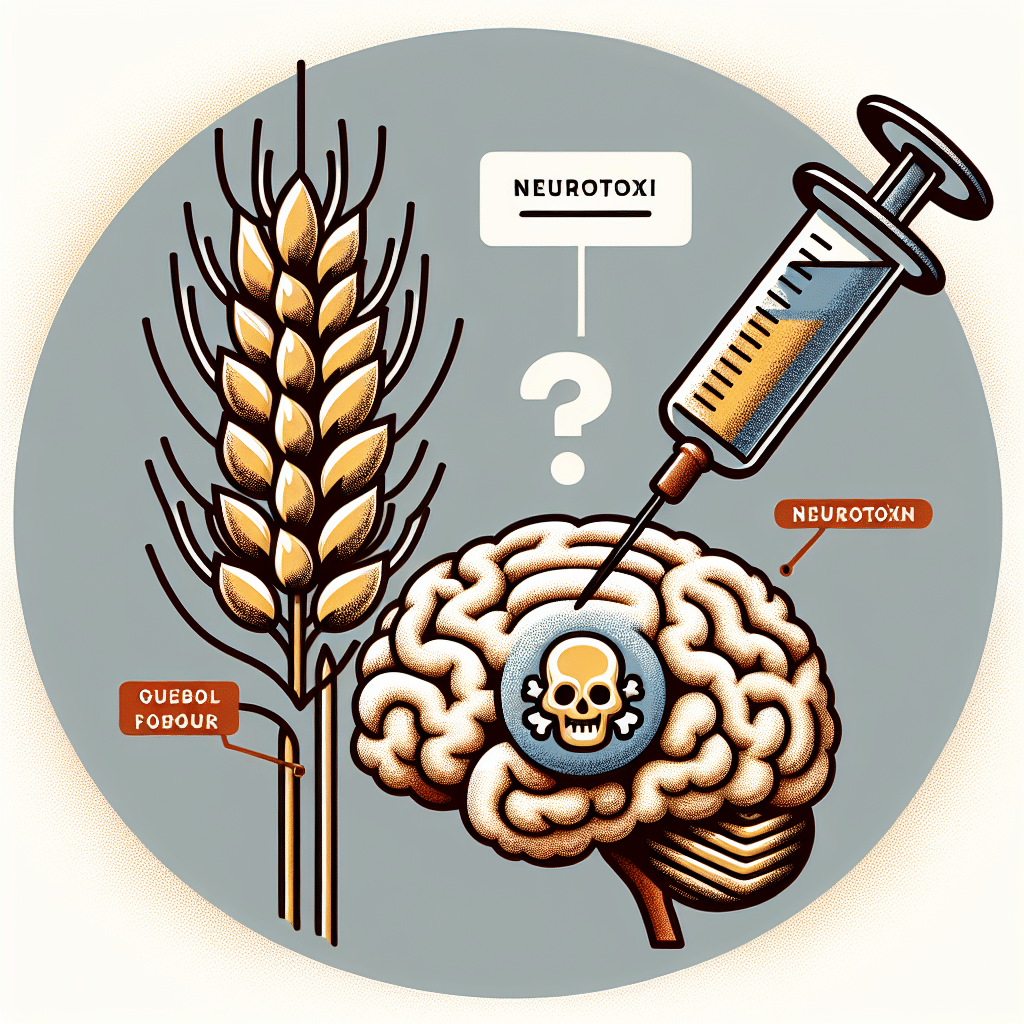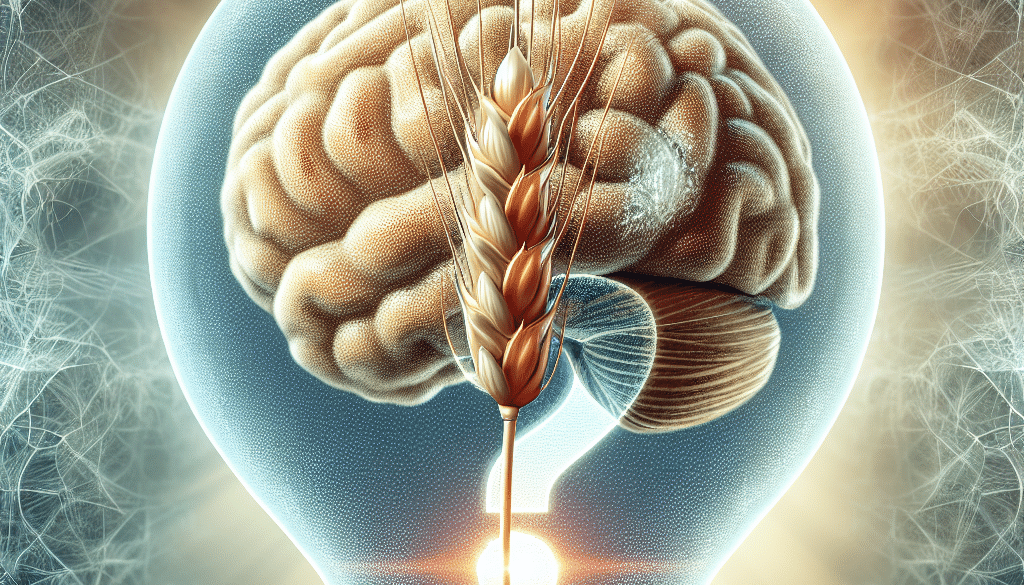Is Wheat A Neurotoxin?
-
Table of Contents
- Is Wheat a Neurotoxin? Unraveling the Truth Behind Grain Consumption
- Understanding Wheat and Its Components
- The Gluten Controversy and Neurological Health
- Wheat Germ Agglutinin and Its Impact on the Brain
- Case Studies and Research on Wheat’s Neurological Effects
- Statistical Analysis of Wheat Consumption and Neurological Disorders
- Is Wheat a Neurotoxin? The Current Scientific Consensus
- Alternatives to Wheat for Those Concerned About Neurological Health
- Conclusion: Wheat and Neurological Health
- Discover ETprotein’s Range of Protein Products
Is Wheat a Neurotoxin? Unraveling the Truth Behind Grain Consumption

Wheat is a staple food for a large portion of the world’s population, providing a significant source of carbohydrates, fiber, and nutrients. However, in recent years, there has been a growing debate about the potential negative health effects of wheat consumption, with some claiming that it could act as a neurotoxin. This article delves into the scientific evidence to explore whether wheat truly poses a threat to our neurological health.
Understanding Wheat and Its Components
Before we can address the question of wheat’s potential neurotoxicity, it’s important to understand what wheat is and what it contains. Wheat is a cereal grain that is processed into various food products, including bread, pasta, and cereal. It contains several components, including gluten, amylopectin A, and wheat germ agglutinin, which have been the focus of health concerns.
The Gluten Controversy and Neurological Health
Gluten, a protein found in wheat, has been the subject of much debate. For individuals with celiac disease, gluten consumption leads to an autoimmune response that damages the small intestine. However, gluten’s impact on neurological health extends beyond celiac disease. Non-celiac gluten sensitivity (NCGS) is a condition where individuals experience symptoms related to gluten ingestion without having celiac disease or a wheat allergy.
- Gluten and Celiac Disease: The neurological manifestations of celiac disease can include headaches, depression, and neuropathy.
- Non-Celiac Gluten Sensitivity: NCGS can cause symptoms such as brain fog, fatigue, and depression.
- Gluten Ataxia: A rare condition where the immune response against gluten affects the cerebellum, leading to coordination and balance issues.
While these conditions highlight the potential neurological effects of gluten, they do not necessarily mean that wheat acts as a neurotoxin for the general population.
Wheat Germ Agglutinin and Its Impact on the Brain
Wheat germ agglutinin (WGA) is a lectin found in wheat that can bind to the body’s tissues and potentially cause harm. Some studies suggest that WGA can cross the blood-brain barrier and attach to the protective sheath of nerves, potentially causing inflammatory responses. However, the concentration of WGA in the human diet is typically low, and more research is needed to fully understand its effects on neurological health.
Case Studies and Research on Wheat’s Neurological Effects
Several case studies and research articles have investigated the relationship between wheat consumption and neurological health. For instance, some studies have found an association between wheat intake and an increased risk of developing certain neurological conditions, such as schizophrenia and autism. However, these studies do not establish a direct causal link and often involve complex interactions between genetics, environment, and diet.
Statistical Analysis of Wheat Consumption and Neurological Disorders
Statistical analyses have been conducted to determine if there is a correlation between wheat consumption and the prevalence of neurological disorders. While some data suggest a potential link, it is important to note that correlation does not imply causation. Many factors can contribute to the development of neurological disorders, and isolating the impact of wheat is challenging.
Is Wheat a Neurotoxin? The Current Scientific Consensus
The current scientific consensus is that wheat is not a neurotoxin for the majority of the population. While certain individuals with specific conditions may need to avoid wheat due to its gluten content or other components, for most people, wheat can be part of a healthy diet. It is essential to consider individual health conditions and dietary needs when making nutritional choices.
Alternatives to Wheat for Those Concerned About Neurological Health
For those who are concerned about the potential neurological effects of wheat or have been diagnosed with a sensitivity or allergy, there are many alternative grains and flour sources available, such as:
- Rice
- Quinoa
- Almond flour
- Coconut flour
- Buckwheat
These alternatives can provide similar nutritional benefits without the components of wheat that may cause concern.
Conclusion: Wheat and Neurological Health
In conclusion, while there are legitimate concerns for certain individuals with specific health conditions, the claim that wheat acts as a neurotoxin for the general population is not supported by the majority of scientific evidence. It is important for individuals to consult with healthcare professionals to understand their own dietary needs and make informed decisions about wheat consumption.
Discover ETprotein’s Range of Protein Products
If you’re looking for high-quality protein alternatives, ETprotein offers a diverse selection of organic bulk vegan proteins that are non-GMO and allergen-free. Their products, including rice protein, pea protein, and various seed proteins, provide excellent nutritional profiles for those seeking alternatives to wheat-based proteins.
About ETprotein:
ETprotein, a reputable protein and L-(+)-Ergothioneine (EGT) Chinese factory manufacturer and supplier, is renowned for producing, stocking, exporting, and delivering the highest quality organic bulk vegan proteins and L-(+)-Ergothioneine. They include Organic rice protein, clear rice protein, pea protein, clear pea protein, watermelon seed protein, pumpkin seed protein, sunflower seed protein, mung bean protein, peanut protein, and L-(+)-Ergothioneine EGT Pharmaceutical grade, L-(+)-Ergothioneine EGT food grade, L-(+)-Ergothioneine EGT cosmetic grade, L-(+)-Ergothioneine EGT reference grade and L-(+)-Ergothioneine EGT standard. Their offerings, characterized by a neutral taste, non-GMO, allergen-free attributes, with L-(+)-Ergothioneine purity over 98%, 99%, cater to a diverse range of industries. They serve nutraceutical, pharmaceutical, cosmeceutical, veterinary, as well as food and beverage finished product distributors, traders, and manufacturers across Europe, USA, Canada, Australia, Thailand, Japan, Korea, Brazil, and Chile, among others.
ETprotein specialization includes exporting and delivering tailor-made protein powder and finished nutritional supplements. Their extensive product range covers sectors like Food and Beverage, Sports Nutrition, Weight Management, Dietary Supplements, Health and Wellness Products, and Infant Formula, ensuring comprehensive solutions to meet all your protein needs.
As a trusted company by leading global food and beverage brands and Fortune 500 companies, ETprotein reinforces China’s reputation in the global arena. For more information or to sample their products, please contact them and email sales(at)ETprotein.com today.












